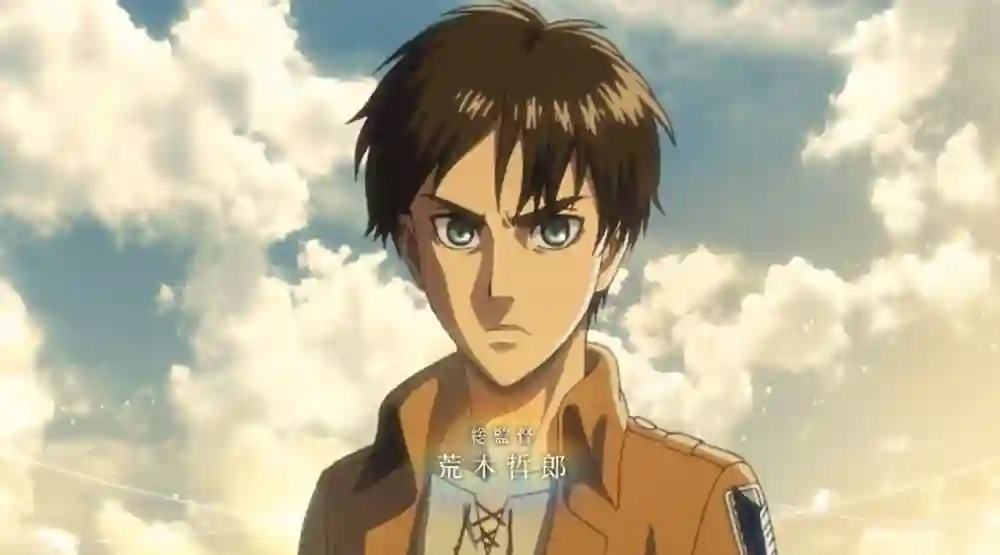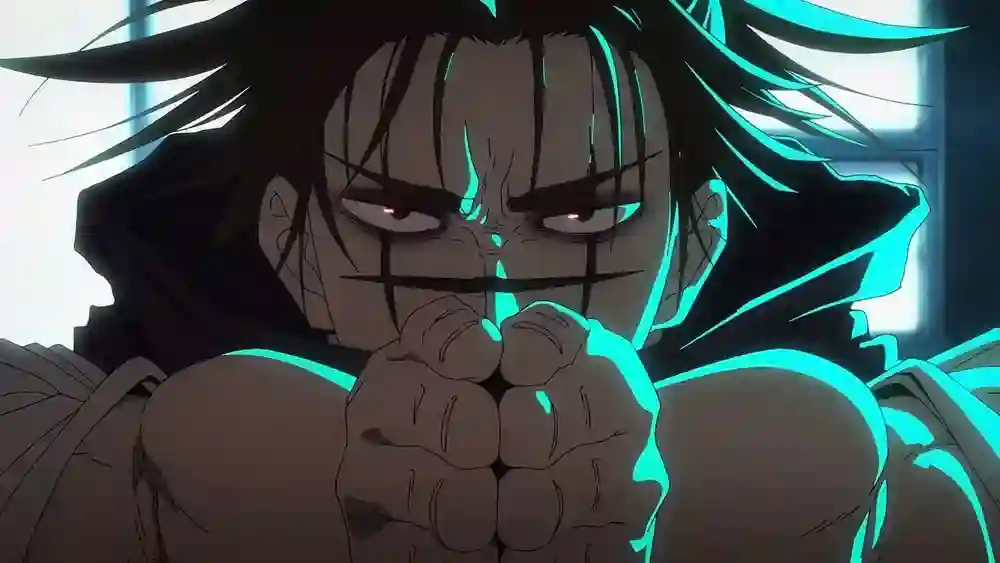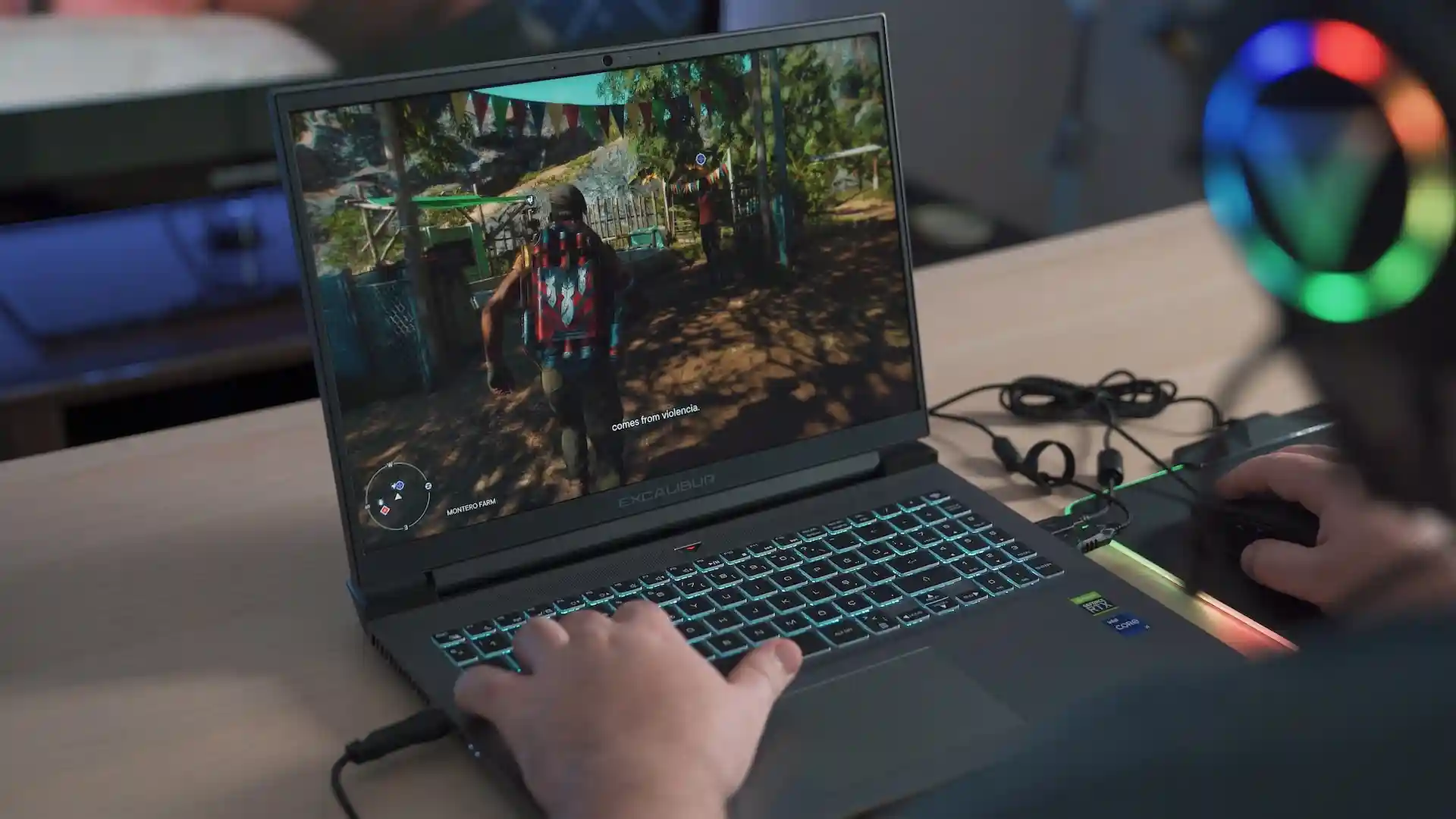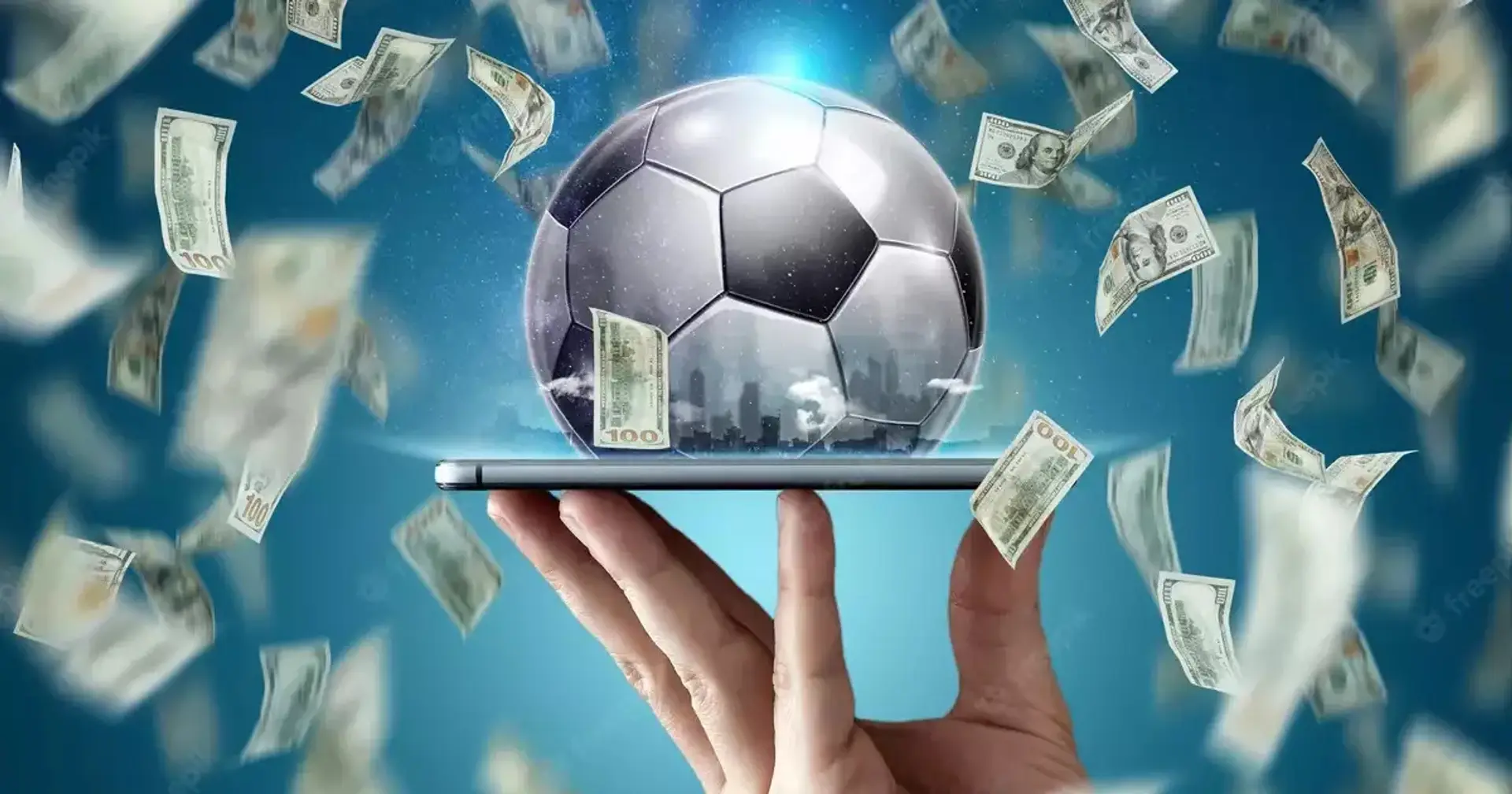Entertainment
Eren Yeager – Attack on Titan’s Hero or Villain?

The debate surrounding Eren Yeager’s role in the Attack on Titan series has captured the imagination of fans worldwide. Is he a hero or a villain? This question has generated intense discussions, as his journey is one filled with contradictions, moral dilemmas, and an evolving understanding of the world. From his innocent beginnings to his transformation into the leader of the Eldian Restorationists, Eren’s character arc is a complex one that challenges the typical definitions of good and evil.
Throughout the series, Eren Yeager’s actions spark both admiration and hatred. In the earlier seasons, he is seen as a determined young man with a clear sense of justice, hell-bent on eliminating the Titans that threaten humanity’s survival. However, as the story progresses, his decisions become increasingly controversial, leaving fans questioning whether his pursuit of freedom justifies the immense destruction he causes. In this article, we will explore Eren Yeager’s journey and examine whether he is ultimately a hero or a villain.
Early Beginnings: The Making of a Hero
Eren Yeager’s journey begins with a sense of profound loss and a desire for revenge. The story kicks off when the Titans breach the walls of humanity’s last safe haven, leading to the death of Eren’s mother. This traumatic event shapes his character, fueling his desire to eradicate the Titans and protect humanity from further destruction.
- Strong Sense of Justice: In the beginning, Eren Yeager is depicted as a hero driven by a strong sense of justice. His intense hatred for the Titans and his unyielding resolve to fight back resonate with viewers, as they see a young man eager to protect the people he loves.
- Formation of Ideals: His early experiences with the military help shape his ideals, as he trains to become a member of the Survey Corps, seeking revenge for the loss of his mother and to uncover the truth behind the Titans. Throughout this phase, Eren embodies the archetype of a classic hero.
In these early episodes, Eren Yeager is unquestionably a hero in the eyes of the viewers. His motivations, while driven by personal loss, align with traditional heroic ideals: fighting for justice and protecting humanity. However, the deeper one dives into Eren’s character, the more complicated his journey becomes.
Eren Yeager’s Changing Philosophy
As Attack on Titan progresses, Eren Yeager’s philosophy undergoes a profound transformation. The truth about the Titans and the world beyond the walls forces him to question everything he once believed. Eren learns that the Titans are not mindless monsters but are, in fact, humans who have been transformed through the power of the Founding Titan. This revelation, along with the discovery of Marley and the history of the Eldians, changes Eren’s perspective drastically.
The Discovery of Marley
One of the most pivotal moments in Attack on Titan occurs when Eren Yeager and his friends venture outside the walls and uncover the truth about Marley. This marks a shift in Eren’s character as he learns of the oppression faced by the Eldian people and the ongoing conflict between the Eldians and the Marleyans. Eren’s shock at the revelation that the people he once considered enemies are actually the oppressed sparks an internal conflict.
- The Cycle of Hatred: As Eren learns more about Marley’s history, he begins to question the cycle of hatred that has led to the endless conflict between the Eldians and the Marleyans. This newfound knowledge adds depth to Eren’s character and motivates his decision to take matters into his own hands, regardless of the consequences.
- The Emergence of a Ruthless Eren: This is where Eren’s transition from hero to anti-hero begins. The realization that humanity’s survival hinges on breaking the cycle of hatred leads Eren to adopt more extreme measures. His desire for freedom becomes all-consuming, and he starts making decisions that blur the lines between right and wrong.
Eren’s changing philosophy showcases his internal struggle, as he wrestles with the morality of his actions and their potential consequences. This internal conflict only deepens as the series progresses, leading to increasingly questionable decisions that challenge the audience’s perception of Eren as a hero.
Eren Yeager’s Villainous Turn
By the time the Attack on Titan story enters its final arcs, Eren Yeager’s transformation is undeniable. His quest for freedom, which initially seemed noble, becomes tainted by the violence and destruction he is willing to unleash upon the world. Eren’s decision to activate the Rumbling—a cataclysmic event that involves the destruction of much of the world outside Paradis Island—cements his role as the series’ ultimate antagonist.
The Rumbling: A Destructive Act of Freedom
Eren’s decision to set off the Rumbling is one of the most controversial actions in the series. His intention is to ensure the survival of his people by crushing the outside world under the weight of millions of colossal titans. Eren justifies this horrific act as a necessary step in securing the future of the Eldians and ending the centuries-old conflict.
- Moral Justification: Eren believes that the Rumbling is a means of breaking the chains of oppression. By unleashing unimaginable destruction, he seeks to create a world where the Eldians are no longer hunted or persecuted. His belief that he must sacrifice everything, including his humanity, to achieve this goal presents him as a tragic anti-hero.
- The Price of Freedom: However, the cost of this freedom is immense. Eren’s actions lead to the deaths of countless innocent lives, including his former comrades. The line between heroism and villainy becomes increasingly blurred as he sacrifices everything in the name of his cause.
While Eren Yeager’s intentions may still be rooted in a desire for freedom and justice, the methods he chooses—particularly the Rumbling—make it difficult to label him as a hero. His willingness to destroy the world outside Paradis Island, regardless of the lives lost, pushes him further into villainy in the eyes of many.
Eren Yeager’s Relationships: A Betrayal of Friends and Family
As Eren’s descent into villainy continues, his relationships with his friends and family become strained to the breaking point. One of the most heartbreaking aspects of Eren’s transformation is how he betrays those who once considered him a close ally.
Eren’s Betrayal of His Friends
Throughout the series, Eren’s bond with characters like Mikasa, Armin, and Levi is one of the central emotional drivers of the story. These relationships shape his motivations and provide the foundation for his earlier heroic actions. However, as Eren’s views become more radical, he begins to distance himself from his friends and ultimately betrays them in pursuit of his vision.
- Mikasa and Armin’s Disillusionment: Mikasa and Armin, two of Eren’s closest friends, struggle to understand his motivations as he pushes them away. Eren’s increasingly cold and distant behavior is a painful betrayal of the friendships that once defined his character.
- The Heart-Wrenching Final Confrontation: In the final confrontation between Eren and his former allies, it becomes clear that Eren is willing to sacrifice their lives for his cause. This heartbreaking moment further solidifies Eren’s tragic transformation from hero to villain.
Eren Yeager’s betrayal of those closest to him adds layers of complexity to his character. His willingness to harm his friends in the pursuit of freedom, even when they disagree with his actions, marks a turning point in his transformation.
Eren Yeager: A Tragic Hero or Irredeemable Villain?
Ultimately, the question remains: Is Eren Yeager a hero or a villain? The truth is that his character exists in a gray area, with elements of both heroism and villainy coexisting within him. His transformation from a passionate young man fighting for freedom to a ruthless figure willing to sacrifice everything for his cause is both tragic and compelling.
- Heroic Beginnings: Eren starts as a classic hero, fighting for justice and the protection of humanity. His desire to free his people and end the reign of the Titans is rooted in noble intentions.
- The Descent Into Villainy: However, as his journey progresses, Eren’s actions become increasingly questionable. His willingness to destroy the world in the name of freedom and his betrayal of his closest friends complicate his moral standing.
- A Tragic Figure: At his core, Eren Yeager is a tragic figure. His quest for freedom, while noble in its inception, leads him down a dark path that ultimately isolates him from those he loves.
In the end, Eren’s actions leave the audience to question whether he is a hero who made difficult choices for the greater good or a villain who sacrificed too much in his pursuit of freedom. His legacy, much like his character, will remain a subject of debate for years to come.
Conclusion: Eren Yeager’s Legacy
Eren Yeager’s journey from hero to anti-hero to villain is one of the most compelling character arcs in Attack on Titan. His transformation challenges traditional notions of heroism and villainy, forcing viewers to grapple with difficult questions about morality, sacrifice, and freedom. Whether seen as a hero who fought for his people’s survival or a villain who destroyed everything in his quest for power, Eren Yeager’s legacy is one that will continue to spark debate long after the story’s conclusion.
In the end, Eren Yeager is both a hero and a villain—depending on the perspective from which you view his actions. His character is a reflection of the complexities of human nature, and his story serves as a powerful reminder of the costs of pursuing freedom at any price.
Entertainment
Choso: A Complex Character in Jujutsu Kaisen’s Story

Choso is one of the most interesting and multi-dimensional characters in Jujutsu Kaisen, a arrangement filled with a wide extend of effective alchemists and reviled spirits. In spite of being presented as one of the adversaries in the Shibuya Occurrence bend, Choso rapidly gets to be a more complex and ethically equivocal figure. His character is not one-dimensional; he is driven by a sense of dependability, familial bonds, and a crave to look for equity for what he sees as wrongs done to him and his family. In this article, we’ll investigate beginnings, his advancement as a character, and the topical components that make him such an critical and locks in portion of Jujutsu Kaisen.
Choso’s Beginnings: A Child of Reviled Blood
Choso’s story starts long some time recently his appearance in the Shibuya Occurrence bend. He is a portion of the Reviled Womb: Passing Canvases storyline, which uncovers that he, along with his brothers, was made through a turned try by the reviled soul Noritoshi Kamo. The Reviled Womb: Passing Depictions are a set of reviled creatures outlined to serve as vessels for the continuation of Kamo’s bloodline, mixing human and reviled vitality to make effective substances., along with his brothers, is one of these beings—born with a profound association to the world of curses.
As one of the “Death Paintings,” Choso is not a normal human, but instep a reviled substance who has a complex and clashed sense of character. Raised nearby his brothers, created an seriously bond with them, and the misfortune of his brothers plays a essential part in his activities and inspirations afterward in the arrangement. Chico’s enthusiastic connection to his kin is a central portion of his character, and it profoundly impacts his choices as he navigates the complex world of curses and jujutsu sorcery.
Soso’s backstory too highlights a repeating topic in Jujutsu Kaisen—the obscured line between what it implies to be human and what it implies to be a revile. In spite of the fact that and his brothers were made by the hands of a human (Noritoshi Kamo), their encounters and feelings are verifiably human. This duality is key to understanding inner struggle and his intelligent with other characters in the series.
Choso’s Part in the Shibuya Incident
Choso’s to begin with critical appearance in the Jujutsu Kaisen anime and manga happens amid the Shibuya Occurrence bend. The Shibuya Occurrence is one of the most seriously and essential circular segments in the arrangement, where curses and jujutsu magicians clash in a fight that has far-reaching results for both sides. In this chaotic environment, develops as one of the key adversaries, joining powers with other reviled spirits like Mahito and Jogo to cause pulverization and take down jujutsu sorcerers.
Initially, Choso is seen as a impressive threat—his revile strategy, Blood Control, permits him to control and control his possess blood, utilizing it to assault and protect with mind blowing accuracy and control. His quality in fight is evident, and his capacity to battle against experienced alchemists such as Yuji Itadori and Nobara Kugisaki exhibits the threat he postures to the jujutsu world.
However, as the Shibuya Occurrence circular segment advances, inspirations gotten to be more clear, uncovering that he is not basically an enemy for the purpose of chaos. In truth, is driven by a profound sense of equity and retribution for the passing of his brothers, whom he accepts were slaughtered by jujutsu magicians. This individual feud shapes the establishment of struggle with the jujutsu world, and it eventually complicates his relationship with the protagonists.
While Choso battles nearby curses, it is clear that his inspirations are established in a want to retaliate for his brothers. This makes him an sincerely driven character or maybe than a simple lowlife. His outrage and distress make a appalling climate encompassing his activities, and his relationship with his brothers includes a layer of complexity to his motivations.
Choso’s Enthusiastic Complexity and Character Development
What sets Choso separated from other curses in Jujutsu Kaisen is the passionate complexity he shows all through the story. Whereas curses like Mahito and Jogo are driven by a crave to devastate people and delight in chaos, Chico’s inspirations are more nuanced. He is not driven by dazzle contempt or a crave to cause enduring. Instep, he is a character characterized by profound passionate torment and a sense of misfortune, especially with respect to his family.
Choso’s relationship with his brothers, especially his cherish for them, is a driving constrain behind his character. In spite of being born from reviled tests, seen his kin as family, and their passings profoundly influenced him. This bond he offers with his brothers reflects a central subject in Jujutsu Kaisen—the significance of family and connections, indeed in the most flighty and unnatural circumstances.
One of the most striking minutes in Chico’s character bend happens when he faces off against Yuji Itadori, the hero of the arrangement. at first accepts that Yuji is dependable for the passing of his brothers, which powers his seethe. In any case, amid their showdown, is constrained to address the truth of his convictions. As he learns more around the circumstances encompassing his brothers’ passings, inspirations gotten to be less approximately retribution and more approximately understanding his put in the world.
This minute of realization marks a turning point in Choso’s character. It signals his development and the starting of his change from an adversary driven by torment and outrage to a more ethically complex figure. By the conclusion of the Shibuya Occurrence circular segment, viewpoint has moved, and his character gets to be one of the more thoughtful and multi-dimensional figures in the series.
Choso’s Powers: Blood Manipulation
Chico’s one of a kind reviled strategy, Blood Control, is one of the key perspectives that make him such an impressive character. This procedure permits to control and control his blood, utilizing it both as a weapon and as a shield. His capacity to control blood gives him a tremendous run of hostile and cautious capabilities, from shaping blood edges and blood shots to making effective guards that can ensure him from attacks.
What makes Chico’s blood control particularly perilous is his capacity to control the blood interior his possess body. He can utilize this method to upgrade his physical quality, make long-range assaults, and control the blood in his opponents’ bodies to cause hurt. This makes him an fantastically flexible and perilous warrior, competent of holding his claim against indeed the most gifted jujutsu sorcerers.
Choso’s dominance over Blood Control is too intelligent of his enthusiastic state. All through the Shibuya Occurrence circular segment, Chico’s utilize of his strategy is regularly tied to his passionate reactions, especially his seethe and distress over the passing of his brothers. This association between his powers and his feelings fortifies the subject of Jujutsu Kaisen, which frequently investigates the relationship between individual injury and power.
Choso’s Ethical Uncertainty and Recovery Arc
One of the most compelling angles of Choso’s character is his ethical equivocalness. As a reviled soul, at first positions himself as an adversary, battling against the jujutsu alchemists. In any case, as his character advances, Choso gets to be more than fair a lowlife. His inspirations are established in melancholy, adore, and the want to ensure his family, which makes him more relatable and human in spite of his reviled nature.
Choso’s recovery circular segment is unobtrusive however impactful. Whereas he starts as a character who is driven by vindicate and outrage, he inevitably comes to terms with his activities and the truth about his brothers’ passings. This travel of self-discovery permits to advance into a character who is more than fair a drive of devastation. By the conclusion of the Shibuya Occurrence arc,has started to address his devotion to the curses and his part in the continuous fight between jujutsu magicians and reviled spirits.
Choso’s possible choice to offer assistance to Yuji Itadori and the other magicians encourages his recovery. In spite of the catastrophe of his past and the torment he has experienced, chooses to move forward and look for a diverse way, one where he no longer permits his despondency to control him. This minute of development and alter is one of the key angles of character that sets him separated from other adversaries in the series.
Choso’s Impact on the Jujutsu Kaisen World
Though Choso’s screen time in Jujutsu Kaizen is restricted compared to other characters, his affect on the story is noteworthy. His ethical complexity, enthusiastic profundity, and possible recovery make him one of the more compelling characters in the arrangement. His part in the Shibuya Occurrence bend challenges the gathering of people to rethink the conventional boundaries between great and fiendish, as well as the ways in which injury and pain shape an individual’s decisions.
Choso’s story moreover highlights a repeating subject in Jujutsu Kaizen: the thought that curses are not inalienably fiendish, but are regularly formed by the circumstances of their creation., born out of a reviled test, is not fiendish by nature but is instep a item of his environment and his encounters. His travel in the arrangement illustrates that indeed curses can have complex feelings and inspirations, making them more than fair thoughtless dangers to be eliminated.
Conclusion: Choso’s Bequest in Jujutsu Kaizen
Choso’s character bend in Jujutsu Kaizen is a confirmation to the series’ capacity to mix activity, feeling, and philosophical topics. From his appalling backstory and the misfortune of his brothers to his possible recovery and ethical development, is a character who rises above the ordinary part of an adversary. His travel reflects the series’ more profound investigation of family, despondency, and the complex nature of great and evil.
Choso remains one of the most compelling and multifaceted characters in Jujutsu Kaisen, and his advancement all through the arrangement includes layers of profundity to the story. As the arrangement proceeds, it will be curiously to see how Chico’s character encourage creates and whether he proceeds to play a key part in the continuous strife between curses and jujutsu alchemists.
Entertainment
Bruno Encanto: Unveiling the Mystery Behind Disney’s Bruno

Bruno Encanto is one of the most interesting and puzzling characters in Disney’s Encanto, a 2021 animated film that captured the hearts of groups of onlookers around the world. From the minute his title is specified, there’s a discernable sense of riddle encompassing this character, and the film’s plot steadily uncovers more around him, challenging both the characters and the audience’s discernments. Whereas the melody “We Don’t Conversation Almost Bruno” got to be a moment hit, starting various memes and fan hypotheses, it is fundamental to see more profound into his part in Encanto to genuinely get it his complexity. This article will investigate Bruno Encanto’s character, his powers, his connections inside the Madrigal family, and the centrality of his part in the bigger narrative.
The Starting of Bruno Encanto’s Story
In Encanto, the Madrigal family is favored with mysterious capacities that serve both the community and their claim family individuals. Each family member’s blessing is an appearance of their special characteristics, and it is clear that the family’s endowments play a pivotal part in the town’s thriving. Among the talented, Bruno Encanto stands out as a character whose powers and behavior are covered in mystery.
Bruno’s blessing is the capacity to see the future, a apparently capable and valuable capacity. In any case, or maybe than being a blessing that brings fortune, Bruno Encanto’s capacity frequently brings distress and vulnerability. The capacity to foresee potential results does not continuously result in positive changes. His dreams are now and then enigmatic, unsettling, and indeed appalling, which causes him to be misconstrued by his family and the townspeople. The idea of seeing the future, whereas at first seen as a favoring, eventually confines Bruno.
Although Bruno’s control was expecting to be a constraint for great, it frequently uncovered bleak or awkward truths, such as the vision that predicted the annihilation of the family’s enchantment. In a family that flourishes on joy, victory, and the solidarity of their blessings, the news of a possibly disheartening future made Bruno a source of pressure and unease. His apparently somber predictions made him an outsider, and it wasn’t long some time recently the family, in an endeavor to ensure their possess bliss, chose to remove themselves from him.
The enthusiastic complexity of Bruno Encanto lies in the way his powers made him feel both important and estranged. Whereas he wished to offer assistance to his family, his capacity to predict troublesome prospects was driven to prohibition. Hence, Bruno’s character encapsulates the thought that now and then, knowing the truth or the future is not continuously as enabling as it appears, particularly when those truths bring torment or division.
The Relationship Between Bruno and His Family
The Madrigal family is the heart of Encanto, and their associations are central to the passionate and account bends of the story. Bruno Encanto’s relationship with his family individuals is both awful and strong, as it illustrates how misconception and miscommunication can lead to estrangement. His relationship with his kin, in specific, is central to understanding his part inside the family.
Bruno’s relationship with his sisters, Julieta and Pepa, is complicated. Julieta, with her recuperating powers, and Pepa, with her capacity to control the climate, have continuously been the more unmistakably effective and celebrated individuals of the family. Bruno Encanto, on the other hand, is more undercover and less caught on. His dreams frequently predict challenges, making a stark difference to his family’s other positive contributions.
Pepa, who has a blessing that specifically impacts the climate, has continuously been touchy to feelings, and this characteristic shapes her see of Bruno. She fears his dreams, as they regularly bring eccentric results. The pressure between them is discernible, as Pepa battles with the idea that Bruno’s dreams might disturb the family’s agreeable life. Whereas Julieta adores Bruno beyond a reasonable doubt, she moreover stresses approximately his failure to fit in, which as it were extends the enthusiastic remove between them.
Bruno’s nonappearance from family social occasions is one of the film’s central secrets. His choice to take off the family and live in segregation in a covered up room inside the Madrigal family talks volumes about the passionate toll his powers have taken on him. In spite of this, his adore for his family never falters, and the film’s determination appears that Bruno’s sense of devotion and sympathy runs profound, indeed if he is misunderstood.
The fundamental subject of family compromise in Encanto is exemplified through Bruno’s story. His return to the family after a long time of self-imposed banish marks a significant minute in the film, as it reflects the thought of tolerating each other’s defects and recognizing that each part has a interesting part to play in the family energetic. Bruno Encanto’s gathering with his family is a capable update that adore and acknowledgment are the keys to mending and understanding.
The Part of “We Don’t Conversation Around Bruno” in Uncovering His Character
The melody “We Don’t Conversation Approximately Bruno” got to be one of the most famous minutes in Encanto, capturing the pressure and mystery encompassing Bruno’s character. The melody is performed by different individuals of the Madrigal family and townspeople, who each have their possess point of view on Bruno and his powers. The song’s catchy tune contrasts with the overwhelming subjects it addresses, which includes profundity to the depiction of Bruno’s estrangement.
In the melody, the verses paint Bruno as a figure of fear and superstition. The townspeople and family individuals describe their intelligence with him, numerous of which include inauspicious forecasts and awkward truths. The rehashed abstain of “We don’t talk about Bruno” emphasizes the collective choice to overlook or separate themselves from him. The tune serves as an intelligent account gadget, uncovering the ways in which individuals maintain a strategic distance from standing up to troublesome truths and how Bruno’s capacity, in spite of the fact that expecting for great, got to be a source of fear and misunderstanding.
However, “We Don’t Conversation Almost Bruno” is not a reflection of how others see him—it moreover gives a see into Bruno’s possessive battles. The melody underscores his confinement and his crave to be caught on, indeed as he proceeds to live on the edges of his family’s world. Whereas others center on the negative perspectives of his powers, Bruno himself yearns for association and acknowledgment, making his character all the more tragic.
Through the melody, Encanto challenges the watcher to rethink how people who are seen as “different” or “other” are treated in society. Bruno Encanto’s segregation is not fair to his powers, but moreover around the ways in which society rejects individuals who don’t fit inside the standard. The tune eventually gets to be a turning point in the story, as the truth about Bruno’s part in the family and the town is uncovered, permitting for a more profound understanding of his character.
Bruno Encanto’s Control: A Favoring and a Curse
Bruno’s enchanted control to see the future is both a favoring and a revile. On one hand, his capacity may be utilized for colossal great, permitting him to avoid fiascos and ensure individuals from hurt. On the other hand, the future he sees is not continuously clear or positive, and his predictions regularly cause trouble. His dreams are not inalienably fiendish or noxious; they basically uncover results that might be repulsive or troublesome to accept.
The burden of Bruno’s control lies in the truth that the future is not continuously something individuals need to know. In the setting of Encanto, the family values their bliss and victory, and Bruno’s capacity to anticipate negative occasions challenges that perfect. His dreams are regularly seen as dangers or maybe than endowments, which comes about in Bruno being disregarded and misconstrued. This struggle between his eagerly and the recognition of his control talks to the bigger subjects of Encanto, which bargains with the weights of flawlessness, family desires, and the fear of change.
Bruno Encanto’s relationship with his control too reflects the broader subject of tolerating blemishes. In a family where everyone’s mysterious blessing is anticipated to contribute to the community’s well-being, Bruno’s control challenges the idea of flawlessness. His failure to alter the future or anticipate awful things from happening uncovers a crucial truth: that not everything is inside one’s control. In numerous ways, Bruno’s battle with his control speaks to the trouble of tolerating the unavoidable and learning to live with uncertainty.
Bruno Encanto: A Image of Recovery and Acceptance
In the climax of Encanto, Bruno Encanto is given the opportunity to recover his put in the family and, in doing so, encounters a frame of recovery. All through the film, his travel is checked by a sense of self-doubt and yearning for acknowledgment. However, by the conclusion of the story, he learns that being acknowledged for who he really is—flaws, flaws, and all—is what genuinely matters.
Bruno’s inevitable compromise with his family symbolizes the control of absolution and the significance of grasping one’s uniqueness. His character’s circular segment is one of development, as he learns to stand up to his possess uncertainties and acknowledge that his powers are not a revile, but a portion of who he is. The enthusiastic determination of his story appears that the travel to recuperating and acknowledgment regularly requires going up against awkward truths and permitting space for vulnerability.
Bruno Encanto’s story moreover parallels the travel of the Madrigal family as a entirety. As the family learns to grasp their imperfections and the complexities of their blessings, they realize that genuine enchantment lies in solidarity, understanding, and cherish. In this sense, Bruno’s part is vital, as he speaks to the significance of recognizing and tolerating everybody for who they are, no matter how distinctive or misconstrued they might seem.
Conclusion: The Enduring Effect of Bruno Encanto
Bruno Encanto, as both a character and an image, has gotten to be one of the most adored and relatable figures in Disney’s cutting edge cinematic history. His story, checked by dismissal, forlornness, and possible acknowledgment, reverberates profoundly with groups of onlookers of all ages. Bruno instructs us that our fears and uncertainties are not the things that characterize us; or maybe, it is our capacity to interface with others, acknowledge our defects, and grasp the future that shapes who we genuinely are.
Through Encanto, Disney has given us a capable story almost family, adore, and the esteem of understanding one another. Bruno Encanto’s travel is a update that in some cases the most misconstrued individuals have the most profound bits of knowledge into what truly things: adore, having a place, and the mettle to confront the obscure.
Entertainment
Zenitsu: The Brave Young Man with Golden Forked Eyebrows

Zenitsu Agatsuma, a character from Devil Slayer: Kimetsu no Yaiba, is a captivating and complex figure in the world of Evil spirit Slayers. Known for his striking brilliant forked eyebrows and unmistakable character characteristics, Zenitsu might appear like a quitter to begin with, but as the story advances, his genuine bravery sparkles through. Zenitsu’s improvement from a dreadful, on edge youthful man into a effective and magnanimous saint is a key portion of the Evil spirit Slayer arrangement, and his travel reverberates profoundly with fans of the appear and manga. This article digs into character, his development all through the arrangement, and how his quality, in spite of his fears, makes him one of the most charming and gallant characters in Evil spirit Slayer.
Zenitsu’s Foundation: A Defeatist with Potential
When watchers are to begin with presented to Zenitsu, he promptly comes off as a comedian alleviation character. With his shinning yellow hair and brilliant forked eyebrows, his appearance is eye-catching, but his identity is regularly characterized by his fear, self-doubt, and consistent stressing. A follower of the Thunder Breathing strategy, is one of the more current Devil Slayers who joins Tanjiro Kamado on his travel to overcome evil spirits and secure humankind. Be that as it may, not at all like Tanjiro and other slayers, continually fears for his life, frequently withdrawing into tears or freeze in the confront of danger.
Zenitsu’s weakness is one of the most conspicuous angles of his character. He is startled of evil presences, continually deploring his destiny as a Devil Slayer and wishing for a ordinary life. He as often as possible complains about his obligations, and his boisterous, sensational identity is the source of numerous of the comedic minutes in the arrangement. However, this beginning depiction of as a defeatist is only the surface layer of his character. Underneath the bravado and fear lies a profoundly caring and steadfast individual with extraordinary potential that gradually develops all through the series.
Zenitsu’s foundation is fundamental to understanding his fears. As a child, he developed up beneath the unforgiving care of his ace, who was known for being exceptionally strict. In spite of the fact that at first a hesitant child, he shown extraordinary characteristic ability for the Thunder Breathing strategy, which he was instructed by his ace. In any case, his need for self-confidence and fear of disappointment kept him from completely grasping his potential. This fear was compounded by his fear of passing, evil spirits, and the extraordinary weight to succeed.
Despite his shortcomings and fears, Zenitsu has a heart full of benevolence. He profoundly cares for his companions, particularly Tanjiro, and is fantastically defensive of those he adores, indeed if he does not continuously appear it. His frailties and fears make him an unimaginably relatable character, as numerous watchers can empathize with his self-doubt. But as Zenjitsu develops all through the arrangement, his genuine bravery starts to sparkle through, particularly when he is put in unsafe situations.
Zenitsu’s Control: Thunder Breathing and the Oblivious Warrior
While Zenitsu may appear like a powerless connect in the early stages of Devil Slayer, it is inevitably uncovered that his quality is distant more impressive than he lets on is a ace of the Thunder Breathing fashion, a one of a kind sword method that permits him to create effective strikes with lightning-fast speed. The Thunder Breathing procedure has a few shapes, each centered on the utilize of speed and control to overcome adversaries, especially demons.
However, Zenitsu’s genuine quality lies not as it were in his expertise but moreover in his exceptional capacity to tap into this control beneath extraordinary stretch or when he is oblivious. When is completely wakeful, his fear regularly limits his potential, and he battles to utilize the Thunder Breathing strategy successfully. But when is oblivious, ordinarily after passing out from fear or depletion, he is able to tap into a much higher level of control. In these minutes, Zangetsu becomes a totally diverse individual: calm, composed, and unimaginably skilled.
One of the most eminent angles of Zenitsu’s battling fashion is his capacity to utilize the To begin with Shape: Thunderclap and Streak. This move is unimaginably quick and effective, permitting to strike adversaries with a jolt of lightning. When employing this method in his oblivious state, he is able to reach a level of speed and control that is unparalleled by most other Evil spirit Slayers. In these minutes, gets to be a constrain to be figured with, vanquishing capable devils with relative ease.
What makes Zetsu’s control indeed more intriguing is that, in his oblivious state, he battles with a center and expertise that is not at all like anything he can accomplish when cognizant. His fear and self-doubt are stripped absent, and he gets to be the individual he continuously had the potential to be. This duality inside —his dreadful, weak self and his effective, courageous change ego—adds profundity to his character and makes his inevitable development and change all the more impactful.
Zenitsu’s Development: From Weakness to Courage
Zenitsu’s travel all through Devil Slayer is one of significant developments. From his starting depiction as a quitter to his inevitable development as a courageous and competent warrior, Zenitsu’s improvement is a confirmation to his internal quality. In spite of the fact that he at first runs from peril, learns the genuine meaning of strength and what it implies to be a hero.
One of the most critical turning focuses in the character circular segment happens amid his fights with evil presences. As Zenitsu faces more and more unnerving rivals, he is constrained to stand up to his fears and rise over them. Whereas his starting responses are to escape or cry out in fear, slowly gets to be more sure in his capacities and his sense of obligation as a Devil Slayer. He starts to realize that he is not battling fair for himself, but for his companions and the individuals he cares around. This realization is a basic portion of development, as he learns to battle not fair out of commitment, but out of cherish and devotion to others.
Throughout the arrangement, development is too reflected in his connections with others, especially with Tanjiro. respects Tanjiro’s unflinching bravery and his sense of equity, and this adoration pushes Zenjitsu to be a way better individual and a more grounded warrior. His companionship with Tanjiro gets to be a driving constraint in his change, as he endeavors to live up to the case that Tanjiro sets.
Zenitsu’s development is moreover stamped by his minutes of bravery. Whereas he may still encounter fear in the confront of overpowering peril, learns to control his uneasiness and act when it tallies. One of the most gallant minutes happens when he faces a especially unnerving evil presence and, in spite of his fear, steps forward to secure his companions. His strength is not the nonappearance of fear, but the capacity to move forward in spite of it, and this makes a genuine saint in his claim right.
Zenitsu’s Connections: Devotion and Friendship
A key viewpoint of Zenitsu’s character is his profound sense of dependability and his solid associations with those around him. In spite of the fact that he frequently appears self-centered and panicky, cares profoundly for his companions and comrades, especially Tanjiro Kamado and Nezuko Kamado. fellowship with Tanjiro is one of the most endearing elements in the arrangement. In spite of visit complaining and uneasiness, he frequently appears unimaginable back for Tanjiro, continuously willing to battle nearby him, indeed if it implies confronting his possess fears.
Zenitsu’s bond with Nezuko is moreover noteworthy, as he creates a profound adoration for her and gets to be defensive of her. In spite of the fact that at first battles to acknowledge the truth that Nezuko is a evil presence, his sentiments of dependability and warmth for her develop more grounded as the arrangement advances. defensive nature and his crave to keep those he cherishes secure include an enthusiastic profundity to his character, as it gets to be clear that his bravery comes not from his crave to overcome his claim fears, but from his want to secure others.
Zenitsu’s relationship with his individual Evil spirit Slayers too highlights his development as an individual. Whereas he begins out as a to some degree egotistical character, gets to be progressively magnanimous as he develops. His eagerness to hazard his life for the purpose of others illustrates how distant he has come from the weak youthful man he once was.
Zenitsu’s Affect: A Legend in His Possess Right
Zenitsu may have begun his journey as a quitter, but by the conclusion of his bend, he has demonstrated himself to be a genuine legend. His development from a dreadful youthful man into a effective warrior who is willing to battle for what he accepts is a confirmation to his inward quality. strength is not almost being intrepid, but around learning to confront his fears head-on and ensure those he cherishes. Through his connections, his development as a warrior, and his immovable devotion, gets to be an indispensable portion of the Devil Slayer story.
Zenitsu’s travel reminds us that indeed those who appear frail or dreadful have the potential for enormity. His character educates the esteem of diligence, mettle, and fellowship. may have brilliant forked eyebrows, but it is his brilliant heart and his bravery that make him one of the most important and cherished characters in Evil presence Slayer.
Conclusion: Zenitsu’s Legacy
Zenitsu’s story in Evil presence Slayer is one of individual development, bravery, and dependability. From his early days as a dreadful and on edge boy to his change into a gallant and sacrificial warrior, travel resounds with fans who see in him the control of overcoming one’s fears and finding quality through cherish and fellowship. As he proceeds to battle nearby Tanjiro and the others, demonstrates that genuine strength comes not from the nonappearance of fear, but from the eagerness to battle for what is right, indeed when confronted with overpowering chances.
-

 Travel1 year ago
Travel1 year agoOnboardicafe.com Login Exploring the Delights of Onboardicafe
-

 Food & Recipes1 year ago
Food & Recipes1 year agoFive Food Products You Must Avoid Giving to Your Infant
-

 Sports1 year ago
Sports1 year agoThe Most Popular Sports In The World
-

 Technology5 months ago
Technology5 months agoSustainable Practices in Video Production: Reducing the Carbon Footprint
-

 Sports10 months ago
Sports10 months agoSmart Solutions for Football Field Maintenance
-

 Health & Fitness11 months ago
Health & Fitness11 months agoSuboxone Tooth Decay Lawsuits and the Pursuit of Justice Against Indivior
-

 Entertainment1 year ago
Entertainment1 year agoNavigating the Web: The Ultimate List of Tamilrockers Proxy Alternatives
-

 Sports10 months ago
Sports10 months agoWearable Tech and the Future of Football










